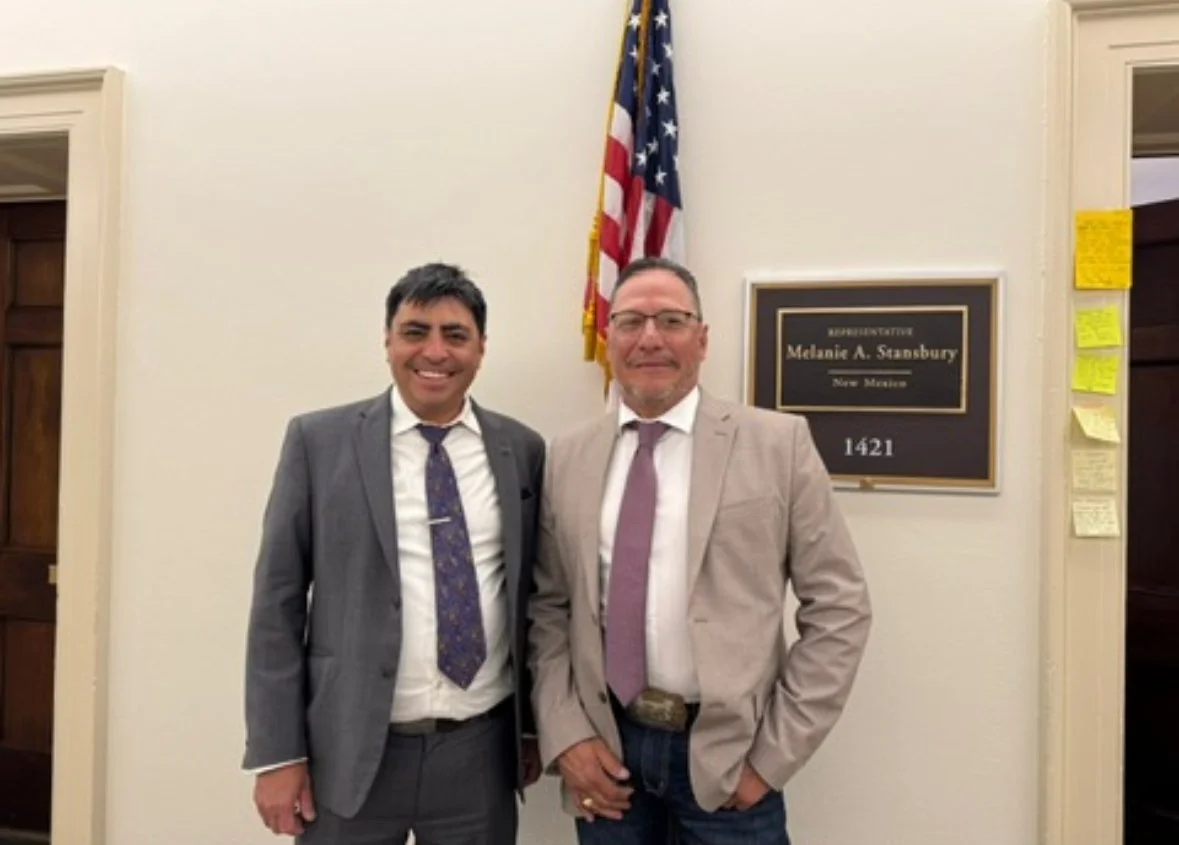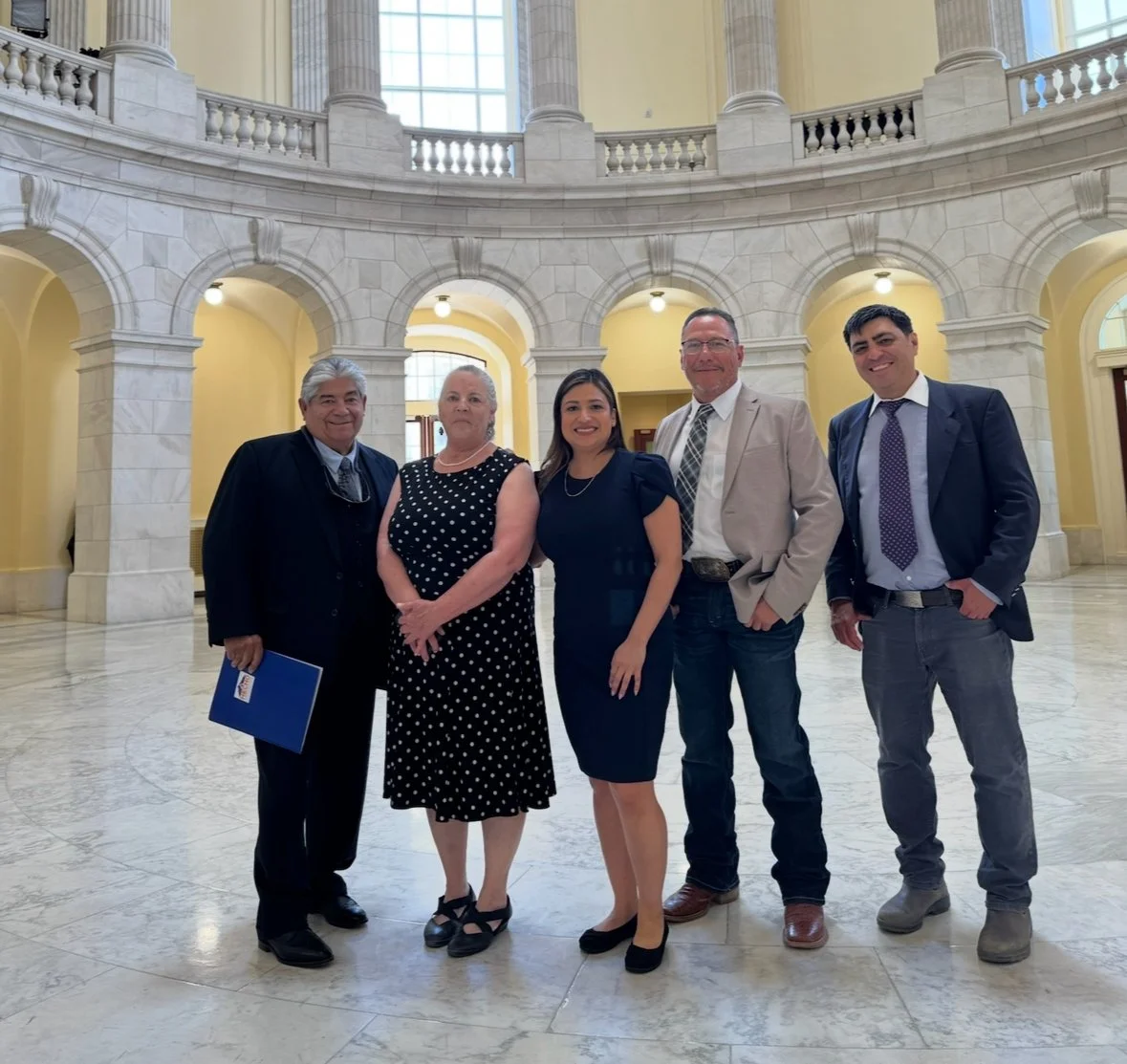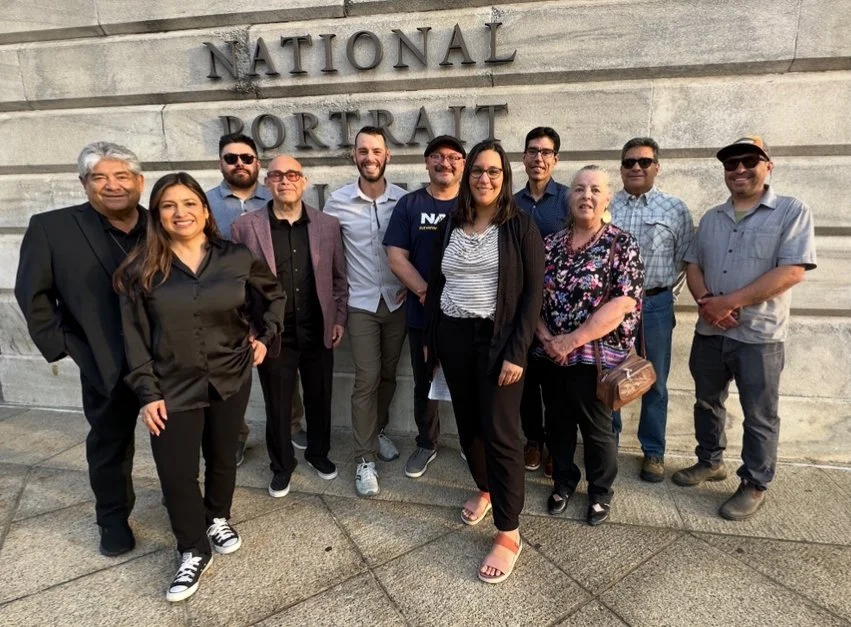Our Way of Life: Conservation Grounded in Culture and Community
By Darien Fernandez, Taos Councilmember, Executive Director of the Taos Land Trust, and member of HECHO’s Hispanic Conservation Leadership Council (HCLC).
I come from Taos, New Mexico, a place where the mountains are close, and the stories are even closer. My family has lived here for generations, long before New Mexico became a state. As we like to say, “the border crossed us.” That rootedness has shaped my identity, values, and commitment to conservation.
As a town councilor in Taos, I represent a community with diverse political views. But when the snow doesn’t fall, the rivers run low, or wildfires burn hotter and longer, we all feel the impact, regardless of how we vote. The land connects us beyond party lines.
Growing up, the outdoors wasn’t just a place to visit, it was how we lived. We gathered firewood to heat our homes, hunted deer to feed our families, and fished in mountain streams in spring. These weren’t hobbies. They were traditions passed down from generation to generation.
Today, I carry that heritage into my role as Executive Director of the Taos Land Trust. We work to protect the very landscapes that raised me, not just as scenic backdrops, but as places of cultural survival and community healing. Conservation, to me, is not just about land. It’s about equity, tradition, and resilience.
Through trail building, forest restoration, and youth farming programs, we help young people from rural and working-class families reconnect with the land and with themselves. When a teenager plants a seed, runs a chainsaw in the forest, or eats a strawberry they grew themselves, something clicks. Querencia, the deep love and connection to the land, awakens.
But this way of life is under threat. Across the West, land and water are being claimed faster than nature can replenish them. Our snowpack is shrinking. The Rio Grande and Colorado watersheds are over-adjudicated. Catastrophic wildfires are more frequent. Public lands, once mismanaged or taken from our Tribes and Hispano land grant communities, are again at risk.
Earlier this year, I had the opportunity to advocate in Washington, D.C. alongside other members of HECHO’s Hispanic Conservation Leadership Council. We met with lawmakers from both parties. I was encouraged to see widespread recognition that public lands matter, not just for recreation and tourism, but for small businesses, cultural traditions, and food security. Republicans and Democrats alike agreed: some things are sacred.
What struck me most, though, was how important our voices are in those rooms. Decision-makers listened because they knew we spoke for our communities back home. Diverse communities that care deeply about land and water. As someone who represents all political affiliations, I can tell you: the mountain doesn’t know the difference. It doesn’t care about partisanship. It only knows whether we care for it or not.
Hispanic leadership in conservation is vital. Our communities are intimately tied to the land. We’ve hunted, fished, farmed, and stewarded these places for centuries.
Now is not the time to retreat. It’s the time to rally, educate, and lead. To tell our stories in our communities, in statehouses, and in the halls of Congress. We must connect more people to the land, because when people are connected, they care. And when they care, they act.
Conservation isn’t a political issue. It’s about passing on what we love to future generations. It's about ensuring that our kids can fish the same streams, hike the same trails, and harvest food from the same soil as our grandparents did.
Whether we’re protecting an acequia, restoring a forest, or speaking up for our community in Washington, we are standing for more than land, we are standing for our way of life, and future generations.








